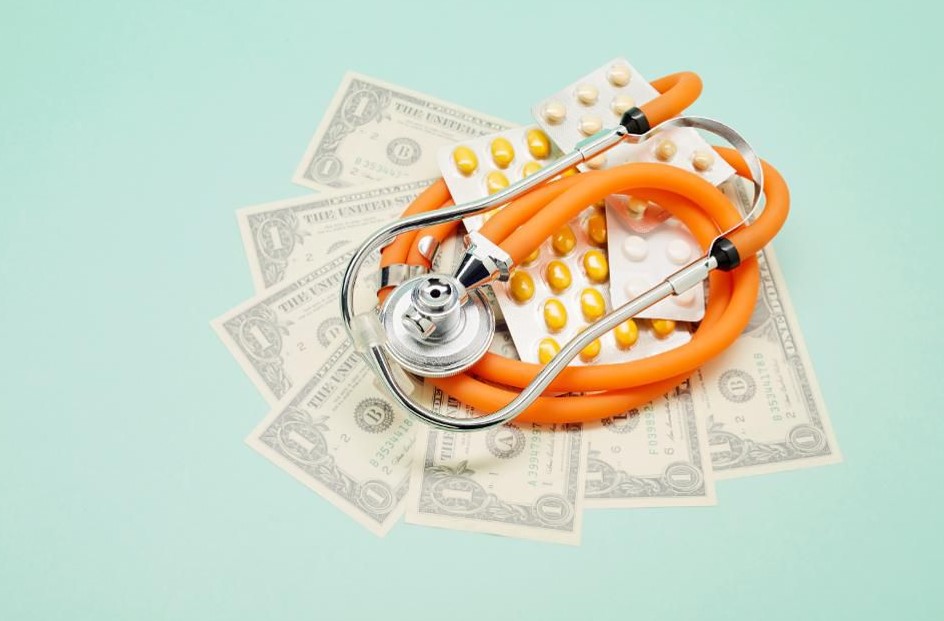
People across the economic spectrum are struggling to pay their medical bills today. A recent survey by the Commonwealth Fund found that 41% of Americans have problems with medical bills or problems paying off medical debt.
The situation is often especially challenging for freelancers with unsteady income. It can be hard to keep pace with medical bills if you’re dependent on clients who may or may not pay you on time.
So how do you avoid medical debt and the unexpectedly large medical bills that cause it?
Recently, I spoke with Robert Goff, co-founder of a nonprofit called End Medical Debt. End Medical Debt, founded in 2014, is a charity that uses algorithms to locate unpaid medical debt, buy it and forgive it. Often, hospitals sell uncollected medical bills for pennies on the dollar to collection agencies and pay them off. The charity works with the credit bureau TransUnion to determine if someone is having financial difficulties, by looking at their credit profile.
In case you’re wondering, you can’t apply to End Medical Debt. Its debt relief is completely random. “If anyone forgives a debt, it is technically a taxable gain to the party relieved of the debt burden,” says Goff. “They are supposed to be issued a 1099 form.” With random debt relief, the IRS does not impose that requirement, he says.
Goff is also co-author of the book End Medical Debt, with Jerry Ashton and Craig Antico—from which they donate all proceeds to the charity. Goff had a 40-year career in healthcare administration management. Ashton and Antico are veterans of the collections industry.
Of course, it’s better to stay out of medical debt than to have to deal with it later. So what can solo entrepreneurs and small business owners do to avoid it or at least mitigate it? There are no magic solution, but Goff has some practical ideas to consider.
Think carefully about your financial exposure. Many people opt for health insurance with the lowest premiums to keep their monthly overhead down. However, those plans often come with the highest deductible, the lowest co-pays and the greatest limitations on coverage, Goff notes. “Should they become sick, their exposure becomes the greatest,” he says.
If you buy a high-deductible policy, make sure you actually fund the deductible, he advises. Some people start a tax-advantaged health savings account to do that, but you can also tuck away the equivalent amount of money in a bank account you don’t use for anything else, he recommends. Many people can’t come up with all of the money to match their deductible at once, but if you make steady contributions every month, you’ll build up some protection for yourself. “That way, if you need it, you’re not scrambling,” he says.
Prevent surprise out-of-network care. Many plans don’t provide out of network coverage or limit it. The problem has surprised so many people with unexpected bills that President Trump recently promised to sign a bill blocking surprise medical bills. Congress is currently considering several bills to block these bills, often tied to out-of-network care.
In the meantime, if your plan does not cover out-of-network care, make sure to say no to care by those providers if you cannot afford to pay for it out of pocket. “If you’re going to have surgery, you have to ask a bunch of questions,” advises Goff. Not only should you ask if the doctor partners with your insurance company but you should also find out if the assistant surgeon, anesthesiologist and pathologist do so, as well, he advises.
Be open about your financial situation with providers. Ask physicians how much a service will cost and, if you can’t afford to pay for it all at once, ask if the treatment can be put on a schedule, Goff advises.
If you’re already gotten the treatment and have been surprised by the cost—and can’t pay the bill all at once—speak up.
“Physicians–particularly those in private practice–are very good about saying “Okay, you’ll send me a check for $50 a month. Hospitals should be willing to do that as well,” says Goff.
The worst thing to do, he says, is to obtain services and wait until you’ve gotten several bills to say you’ve got a problem paying them, he advises. “You’ve got to say something early—‘This is going to be a problem cash-flow-wise for me.’”
It is better to pay small amounts of a medical bill every month than to put it on a credit card, he says. “Now you’re not only paying the medical bill but 29% interest,” he says.
If you send some money, it would be foolish for the provider to turn over the bill to a collection agency, which might keep 30-50% of the bill, he says. “If I have someone on a payment plan, if I’m sending a bill and getting some payment, why would I want to hassle them?” he asks.
